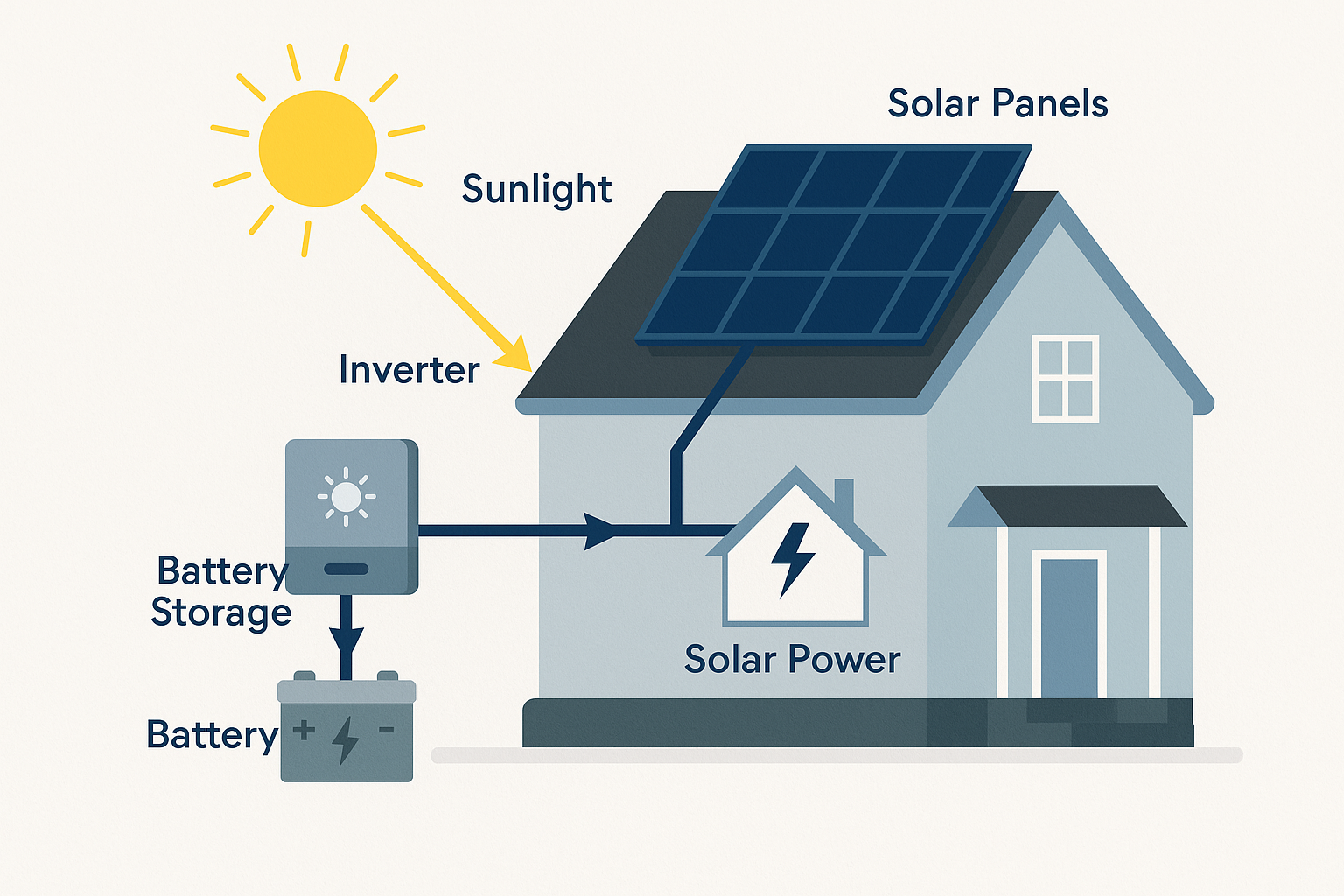Solar energy isn’t just a buzzword — it’s one of the most effective ways homeowners can cut costs and gain energy independence. But how do solar panels actually power your home? In this article, we’ll walk you through the basics of residential solar, from sunlight to the socket.

Solar energy, simplified
At the core of any home solar system are photovoltaic (PV) panels. These panels capture sunlight and convert it into electricity. The process happens silently and without any moving parts, making solar systems durable and low-maintenance.
The main components of a solar panel system
- Solar panels: Mounted on your roof, they collect sunlight and generate direct current (DC) electricity.
- Inverter: Converts DC electricity into alternating current (AC), which powers your home.
- Net meter: Tracks the electricity your system sends back to the grid, helping you earn energy credits.
- Battery (optional): Stores excess solar power for use at night or during outages.
How power flows through your home
Once sunlight hits your panels and gets converted to usable AC electricity, it flows through your home’s electrical panel to power lights, appliances, and devices. If you produce more energy than you use, it can flow back into the grid — potentially lowering your utility bill through net metering.
What happens at night or on cloudy days?
Solar systems are tied to the grid, so when your panels aren’t producing enough (like at night), you automatically draw electricity from the utility. With a solar battery, you can store daytime energy for use anytime — reducing your grid dependence even more.
Benefits of going solar
- Lower energy bills and long-term savings
- Protection from rising utility rates
- Reduced carbon footprint and cleaner energy
- Increased home value in many areas
How to tell if your house is a good fit for solar
Solar works best for homes that meet these conditions:
- Have a south- or west-facing roof with minimal shade
- Spend at least $100 per month on electricity
- Live in an area with good sun exposure
- Own your home (vs. renting)
Curious if solar could work for you? We offer a free consultation and custom system design based on your home’s unique layout and energy use.



































